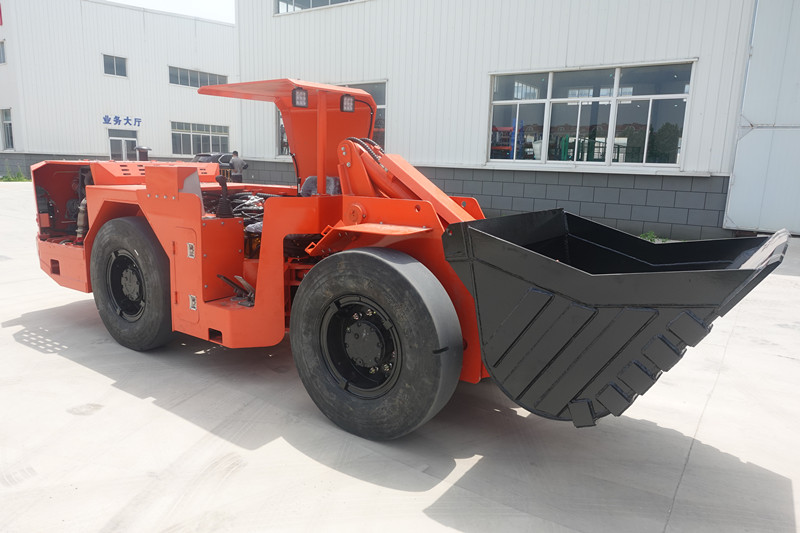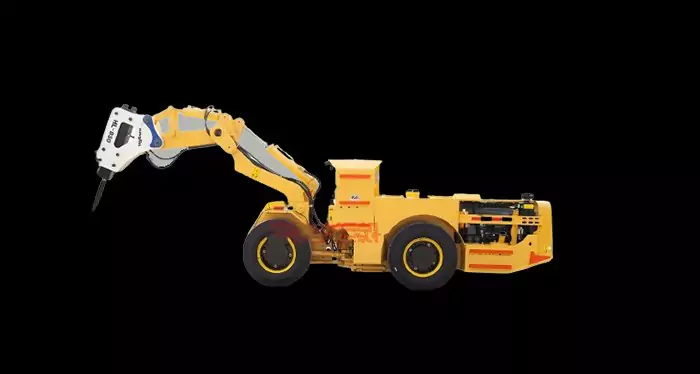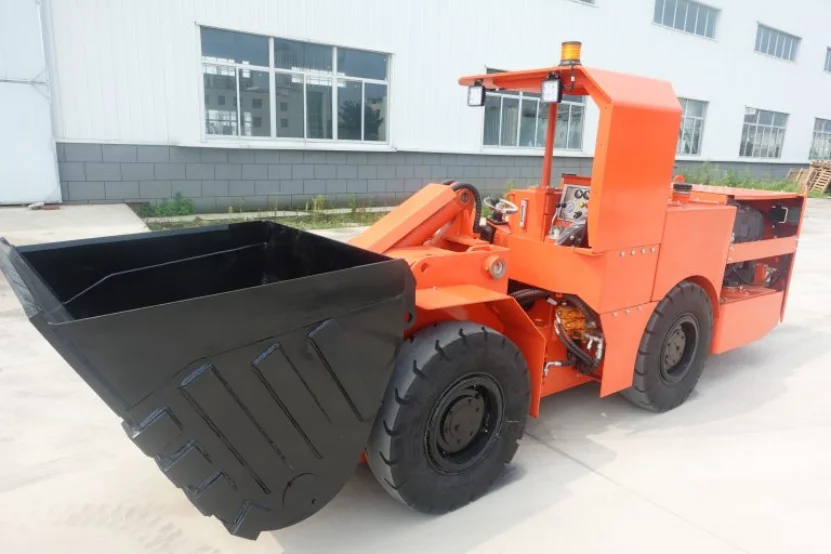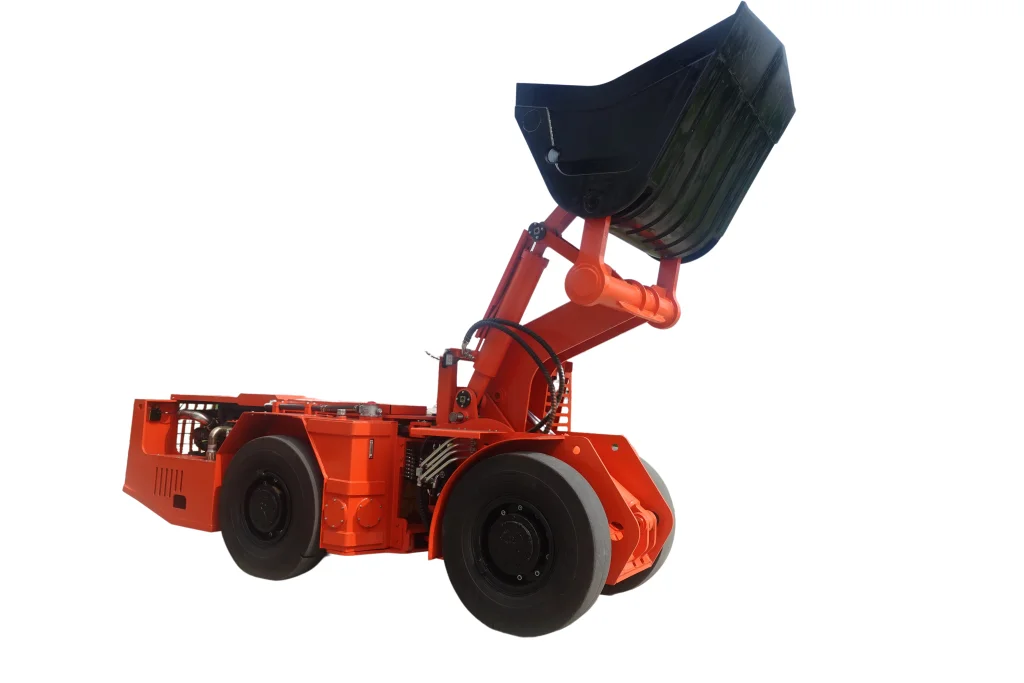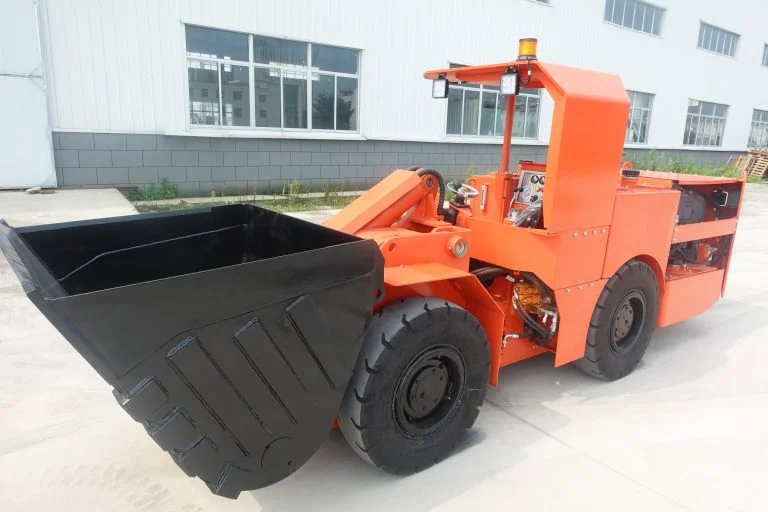Specialized machines play a crucial role in underground mining to ensure the operations are conducted safely, profitably, and efficiently. For those in the industry, knowing which mining machine goes where is key to maximizing productivity without compromising safety. In this article, we highlighted the equipment types of underground machinery, their functionality and well importance for the mining industry.
Introduction to Yantai Chi Hong Machinery Co., Ltd.
Yantai Chi Hong Machinery Co., Ltd. has been a significant player in the underground mining machinery industry for over twelve years. The company has developed a comprehensive system encompassing research, production, sales, and services, making it one of China’s leading manufacturers of mining machinery. Yantai Chi Hong boasts a 96,000m² production base with a dedicated workforce, including over 300 production personnel and 60 advanced management staff. The company’s products have received accolades and certifications, including EU CE certification and ISO9001:2015 international quality certification. Among their extensive product range are specialized machines, designed to meet the various demands of underground mining operations.
Key Categories of Underground Mining Machinery
Load Haul Dump (LHD) Machines
Load Haul Dump (LHD) machines are pivotal in underground mining operations, primarily designed for transporting ore and waste rock. Yantai Chi Hong offers a series of WJ underground LHD loaders with varying capacities, ranging from 0.6 cm to 6 cm. These machines are engineered for optimal performance in narrow-vein mining environments. Electric LHD models, such as the CHWJD series, enhance productivity while reducing pollution levels, making them not only efficient but also environmentally friendly. With features that improve ergonomics for operation and maintenance, the latest LHD models prioritize user safety, ensuring smoother operation under challenging conditions. Furthermore, their intelligent designs result in increased overall mine productivity and profitability.
Underground Mine Trucks
Underground mine trucks are essential for moving large volumes of material through underground passageways and tunnels. Yantai Chi Hong’s UK series of underground dump trucks features capacities between 6 to 30 tons, optimized for performance in narrow vein tunnels. Models like the CHUK series are designed specifically to tackle the demands of small and medium-sized hard rock mines, with structures that facilitate high-speed travel along long, spiraling haulage ways, even on steep gradients of up to 20%. The ability to operate fully loaded under such rigorous conditions underscores the capability and reliability of these underground mine trucks. Moreover, the innovative designs of these trucks enhance maneuverability, allowing operators to navigate tight spaces efficiently.
Underground Rock Breakers
Underground Rock Breaker-CHSJ400
Underground rock breakers are specialized machines used for breaking rock to facilitate mining operations. Yantai Chi Hong’s line of rock breakers, such as the CHSJ series, showcases advanced technology for hydraulic breaking in underground settings. Designed for high efficiency, these machines are equipped with reliable diesel engines delivering superior performance and stability. The ergonomic design of their cabins ensures safe operation, providing clear visibility and comfort for the driver, while the sophisticated monitoring systems aid in delivering essential operational information. The rock breakers contribute significantly to improving the overall productivity of mining operations by reducing downtime and enhancing efficiency in rock handling and breaking tasks.
Maintenance and Lifecycle Management
Regular Maintenance Protocols
Maintaining underground mining machinery is integral to ensuring consistent operational efficiency and safety throughout its lifecycle. A well-structured maintenance protocol can prevent unexpected downtime and costly repairs, thereby enhancing productivity. Regular inspections of various components, such as hydraulic systems, electrical wiring, and structural integrity, are essential. Furthermore, performing routine servicing—including lubrication, filter changes, and replacement of worn-out parts—ensures the machinery operates smoothly over time. Staff training is equally important; ensuring operators can perform basic maintenance tasks not only contributes to equipment longevity but also promotes a culture of safety awareness on site.
Moreover, maintenance schedules must be customized to the particular working conditions under which equipment operates. As an example, if your operations conduct round-the-clock work in harsh underground environments, the wear and tear on this equipment may occur more rapidly than machinery that is utilized in less arduous conditions. Using predictive maintenance strategies, which rely on monitoring technologies to assess vibration, temperature, and fluid levels to provide additional information about the health of equipment. This approach reduces the possibility of a sudden failure because issues can be handled before they arise as serious problems.
Lifecycle Management Strategies
Lifecycle management strategies are essential for maximizing the performance and economy of underground mining equipment over its lifetime. Mining equipment generally goes through four phases in its lifecycle — purchase, use, maintenance, and ultimately disposal or replacement. The value of a car is not just in the purchase price, but rather in the total cost of ownership, and so too mobile strategic planning within its primary acquisition context. Operational costs, service and maintenance costs, and the potential downtime that a machine can create over its economic life are important factors to keep in mind.
While in operation, analytics can improve lifecycle management by analyzing usage trends and alerting on opportunities to drive efficiencies. Conducting periodic examinations of operational performance versus the key performance indicators (KPIs) enables logical choices to be made on when maintenance, upgrades, or replacement is needed. Such a data-driven strategy allows mining operations to respond to evolving needs and optimize resource allocations accordingly.
Then comes the disposal phase which has to be handled with due diligence as it must comply with regulations and environmental guidelines. Picking sustainable disposal methods like recycling parts or reusing machinery components can reduce environmental burdens and maximize investment return. Having strong relationships with manufacturers, such as Yantai Chi Hong, ensure that the equipment meets industry standards and practices – a commitment to responsible operations in the mining sector.
Conclusion
To conclude, a variety of underground mining machinery enhances mining operations in different applications. The two machines have their unique functions and, when used correctly, can help the mining industry deliver results more quickly whilst adhering to very tight safety and environmental constraints. While Yantai Chi Hong Machinery Co., Ltd combines a broader set of offerings with an evident commitment to innovation, it may be the case that technological progress itself represents the way through which underground mining can achieve its highest levels of efficiency.
Additionally, thorough maintenance and lifecycle management strategies maximize the lifespan and efficiency of mining assets. By maintaining a good maintenance regime and effective lifecycle management inputs, machines are operated for a long and thus have a profound effect on cost efficiency. With a shift to proactive or prescriptive equipment care and performance monitoring, mining operations can succeed even in the challenging conditions of underground environments.
Keeping up with technological developments in machinery and maintenance is therefore essential for stakeholders involved in underground mining, as the field continues to evolve. High-quality underground mining machinery and the appropriate management scale all fall within an organizational culture that emphasizes operational excellence, safety, and sustainability; with the accumulative effects of these efforts eventually leading to success in the mining sector.


